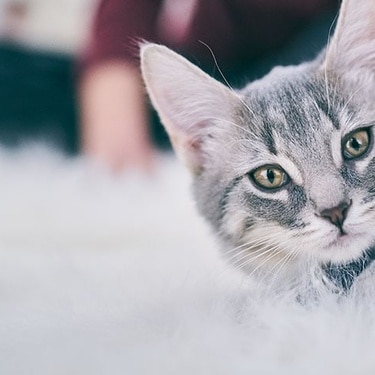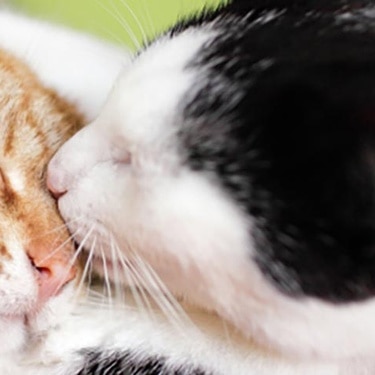
-
Find the right food for your petTake this quiz to see which food may be the best for your furry friend.Find the right food for your petTake this quiz to see which food may be the best for your furry friend.Health CategoryFeatured products
 Adult 6+ Large Breed Chicken Meal, Barley & Rice Recipe Dog Food
Adult 6+ Large Breed Chicken Meal, Barley & Rice Recipe Dog FoodSupports energy level, joint health, and beautiful coat in large breed mature dogs
Shop Now Puppy Sensitive Stomach & Skin Salmon & Vegetable Stew
Puppy Sensitive Stomach & Skin Salmon & Vegetable StewGentle on stomachs while nourishing skin & supporting development in growing puppies
Shop Now Adult Perfect Weight & Joint Support Chicken & Brown Rice Recipe Dog Food
Adult Perfect Weight & Joint Support Chicken & Brown Rice Recipe Dog FoodThis weight management and mobility support dog food was created with Hill’s unique understanding of the biology of overweight dogs.
Shop NowFeatured products Adult Sensitive Stomach & Skin Pouch Variety Pack Cat Food, Chicken & Beef, Salmon & Tuna
Adult Sensitive Stomach & Skin Pouch Variety Pack Cat Food, Chicken & Beef, Salmon & TunaCarefully made, gourmet daily nutrition. Tasty chunks with Salmon & Tuna in a decadent gravy. Supports digestive health, nourishes skin and promotes a lustrous fur.
Shop Now Sensitive Stomach & Skin Chicken & Beef Dinner
Sensitive Stomach & Skin Chicken & Beef DinnerGourmet daily nutrition, carefully made. Tasty chunks with chicken & beef in a decadent gravy. Supports digestive health, nourishes skin and promotes a lustrous fur.
Shop Now Adult Perfect Weight Salmon & Vegetable
Adult Perfect Weight Salmon & VegetableOver 70% of cats lost weight within 10 weeks when fed this nutrition
Shop Now -
DogCat
- Cat Tips & Articles
-
Health Category
- Weight
- Skin & Food Sensitivities
- Urinary
- Digestive
- Kidney
- Dental
- Serious Illness
-
Life Stage
- Kitten Nutrition
- Adult Nutrition
Featured articles Pet Food Storage Tips
Pet Food Storage TipsWhere you store your cat and dog food can make a big difference in the quality and freshness once it is opened. Here are some common questions and recommendations for optimal storage for all of Hill’s dry and canned cat and dog food.
Read More Water
WaterWater is the most important nutrient of all and essential for life. Animals can lose almost all their fat and half their protein and still survive, but if they lose 15% of their water, it will mean death.
Read More The Right Diet For Your Pet
The Right Diet For Your PetLearn what to look for in healthy pet food & nutrition, including ingredients, quality of the manufacturer, your pet's age, and any special needs they have.
Read More -


There are surgical procedures that can make your cat unable to reproduce. They involve the removal of ovaries and uterus for female cats; and the removal of the testicles for male cats. Neutering refers to either procedure.
If you have an outdoor cat or multiple indoor cats you should seriously consider having your cat neutered. Unless you are planning on breeding and are confident you will find homes for all the kittens (a female cat can produce up to 15-20 kittens a year), the most responsible thing to do is have your cat neutered.
Benefits of neutering
Even if your cat stays indoors and doesn't live with a viable breeding partner, it's still a good idea to have your cat neutered.
Females
If you have a female cat, spaying makes ovarian cancer impossible and also dramatically reduces the risk of cervical cancer.
It will also eliminate a number of behaviors that you may find undesirable. A female that hasn't been neutered will go into heat around three to four times a year. During this time she may meow constantly or try to get out of the house.
When a female goes into a heat several times without mating she may develop problems like depression, anorexia, diarrhea and vomiting. Neutering will eliminate all such behaviors.
Males
Male cats also benefit greatly from being neutered.
It eliminates the risk of testicular cancer and prevents a number of behaviors that can make owning a male cat difficult.
Neutered male cats are far less territorial, will rarely spray urine to mark their territory, and their urine will not smell as strong.


Tasty Tips
If you have two male cats, neutering them will dramatically reduce the amount they fight. In fact, neutered cats are generally much more docile and easier to handle.
The operation
Preparing for the actual procedure is the same for each gender. You should not feed your cat for about 12 hours before the surgery.
The cat is put under a general anesthetic and hooked up to monitoring equipment to make sure there are no complications. Then an incision is made and the ovaries and uterus are removed in feamales and the testicles in males. The incision is then closed with stitches that may be hidden inside.
Because a larger incision is needed for a female cat she may need to stay at the clinic for a day or two while male cats generally go home the same day.
Post operation
Your vet may fit your cat with a head cone to prevent the stitches from being chewed. You'll need to keep an eye on the cat to make sure that the wound shows no signs of swelling, tearing, bleeding or discharge. If any of these symptoms appear, inform your vet immediately.
Usually, a cat recovers completely from a neutering operation, and within a week or two the vet will remove the stitches.
During recuperation make sure the cat has plenty of water, clean bedding and a chance to relax in a calming environment.
Side effects
You may notice a small amount of weight gain after neutering and there is a chance of urinary problems occurring. These can be countered if you remember to feed the right cat food. Ask your veterinarian.
Related products

Gourmet daily nutrition, carefully made. Tasty chunks with chicken & beef in a decadent gravy. Supports digestive health, nourishes skin and promotes a lustrous fur.

Precisely balanced nutrition for indoor cats with the delicious taste of savory minced chicken

Carefully made, gourmet daily nutrition. Tasty chunks with Salmon & Tuna in a decadent gravy. Supports digestive health, nourishes skin and promotes a lustrous fur.

Over 70% of cats lost weight within 10 weeks when fed this nutrition
Related articles

HillsPet Nutrition provides information on proper nutrition, fitness and special needs in keeping your cat healthy and happy.

As a responsible pet owner you owe it to yourself and your cat to understand problems associated with overweight cats.

Being overweight puts a cat at risk for developing many serious health issues. Weight gain indicates an increase in body fat and usually results when your cat eats too much and exercises too little.

Get helpful information on proper feline oral healthcare and why it's so vital to take care of your cat's teeth.

Put your cat on a diet without them knowing
Our low calorie formula helps you control your cat's weight. It's packed with high-quality protein for building lean muscles, and made with purposeful ingredients for a flavorful, nutritious meal. Clinically proven antioxidants, Vitamin C+E, help promote a healthy immune system.
Put your cat on a diet without them knowing
Our low calorie formula helps you control your cat's weight. It's packed with high-quality protein for building lean muscles, and made with purposeful ingredients for a flavorful, nutritious meal. Clinically proven antioxidants, Vitamin C+E, help promote a healthy immune system.


